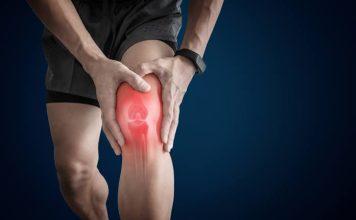After putting in long hours during the week, the weekend is a time to relax and have some fun. Engaging in activities like golf, hiking, or intense workouts can help you unwind and rejuvenate.
However, the physical exertion may lead to muscle soreness and stiffness after a day or two. Don’t let muscle pain prevent you from enjoying your activities. It’s important to understand the reasons behind the discomfort and explore potential remedies to ensure that you can continue participating in your favorite pastimes.
What is causing the Sore in my muscles?
It is common to experience muscle soreness after engaging in physical activities such as exercising, playing sports, or doing household chores, especially if:
You performed activities that are not part of your usual routine, such as participating in a marathon instead of your regular jogging routine.
You suddenly increased the intensity or duration of your workout.
You engaged in unfamiliar exercises that lengthen rather than shorten your muscles, like walking downhill or extending your arm during a bicep curl.
These changes in your exercise regimen can result in small injuries to your muscle fibers and connective tissue, leading to soreness that typically begins about a day later.
According to Ethel Frese, PT, who is an associate professor of physical therapy at St. Louis University, this discomfort is known as ‘delayed onset’ muscle soreness, and typically reaches its peak within 48 hours before gradually improving.
The positive news is that as you continue with the same physical activity, your muscles will become accustomed to it.
Allan H. Goldfarb, PhD, a professor and exercise physiologist at the University of North Carolina, Greensboro, explains that you may experience little to no discomfort on subsequent occasions as the muscles and connective tissue have strengthened.
What’s the cause of my joint pain may be osteoarthritis, a common inflammatory condition that tends to worsen with age. This condition occurs when the cartilage protecting the joints deteriorates, resulting in inflammation and discomfort.
Additionally, joint pain may result from overuse or injury, such as tennis elbow or knee issues caused by ligament or meniscus problems. Ligaments are connective tissue bands that link bones in the body, while a meniscus is a flexible disc that cushions the knee.
Treating Sore Muscles and Joint Pain
Treating pain in muscles and joints is a common concern for many individuals. One common query people have is whether to apply heat or ice to the affected area. Health professionals recommend using indirect ice, such as an ice pack wrapped in a thin cloth, for immediate relief. Heat may provide temporary comfort but does not effectively reduce damage or speed up recovery.
It is advised to ice the sore area immediately after activity to reduce inflammation and apply heat later to promote blood flow. Heat can also help alleviate joint pain. For occasional muscle soreness, over-the-counter pain relievers like acetaminophen or NSAIDs such as aspirin, ibuprofen, or naproxen can be helpful. However, it is important to be cautious with NSAID use as long-term consumption can hinder muscle repair.
Before taking any medication, consult with a healthcare professional or pharmacist to ensure there are no interactions with other medications you are taking and to determine if they are safe for your specific health conditions. In cases of sudden and severe muscle pain, it may indicate an injury that requires medical attention. If the pain persists or becomes intense, it is advisable to contact your doctor for further evaluation.
How Can I Prevent Muscles and Joints from Becoming Sore?
In the past, experts recommended stretching before a workout to prevent sore muscles, but recent research has shown that pre-workout stretching may not be effective in preventing soreness or injury. Instead, it is better to do a thorough warm-up before exercising and save stretching for after the muscles are already warm.
Some natural substances such as vitamin C are said to help prevent sore muscles, but it is important to consult with a doctor before taking high doses of any vitamin. For those who exercise intensively, protein supplements have been found to reduce post-workout muscle soreness in some studies.
To prevent sore muscles, it is recommended to gradually ease into an exercise routine rather than jumping into intense workouts. Consult with a doctor before starting a new exercise program, especially if you have a medical condition. Exercise is beneficial for joint health as well, as movement helps provide nutrition to the joints. It is important to avoid overexerting oneself and to work with a physical therapist to learn safe and effective exercises to strengthen muscles and improve joint health.
